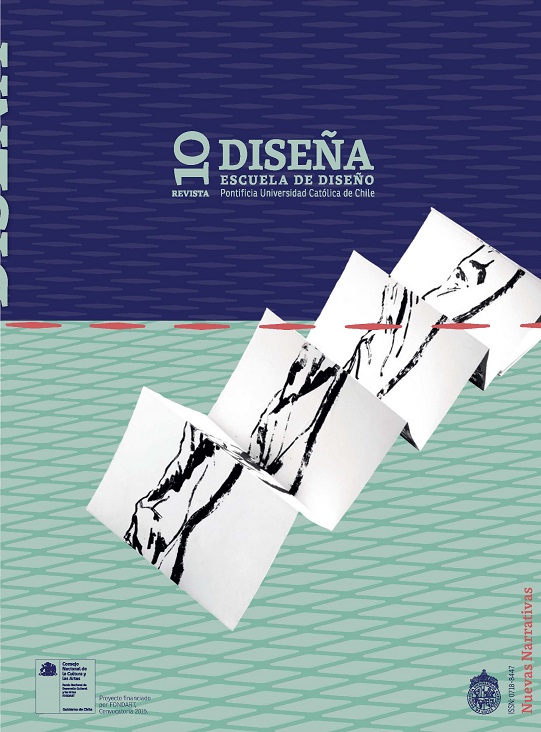Digital | Analogue: Personal Digital Fabrication Systems
Main Article Content
Abstract
The article summarizes the elaboration of a theoretical and projective body of work developed by the author through design studios VII and VII of Pontificia Universidad Católica de Chile’s School of Design, as well as from work done at the Digital Fabrication Lab Santiago (Fab Lab Santiago). Diverse systems of personal digital fabrication are described, highlighting Sandbot. These systems seek to propose a new language around technologies oriented to digital fabrication of objects, gathering local contexts through materials, stimuli from the surroundings and interaction with users.
Article Details

This work is licensed under a Creative Commons Attribution-ShareAlike 4.0 International license.
COPYRIGHT NOTICE
All contents of this electronic edition are distributed under the Creative Commons license of "Attribution-ShareAlike 4.0 Internacional" (CC-BY-SA). Any total or partial reproduction of the material must mention its origin.
The rights of the published images belong to their authors, who grant to Diseña the license for its use. The management of the permits and the authorization of the publication of the images (or of any material) that contains copyright and its consequent rights of reproduction in this publication is the sole responsibility of the authors of the articles.
References
Johnson, S. (2001). Sistemas emergentes, o qué tienen en común hormigas, neuronas, ciudades y software. Madrid: Turner.
Ministerio del Medio Ambiente, Chile. (2001). Informe del estado del medio ambiente 2001.
Morin, E. (2007). ¿Hacia el abismo? Globalización en el siglo XXI. Barcelona: Paidós.
Negroponte, N. (1995). Being Digital. Nueva York: Vintage Books; Random House.
Rifkin, J. (2012). La civilización empática: la carrera hacia una conciencia global en un mundo de crisis. Barcelona: Paidos Ibérica.
Taylor, F. W. (1911). The Principles of Scientific Management. Londres: Harper & Brothers.

